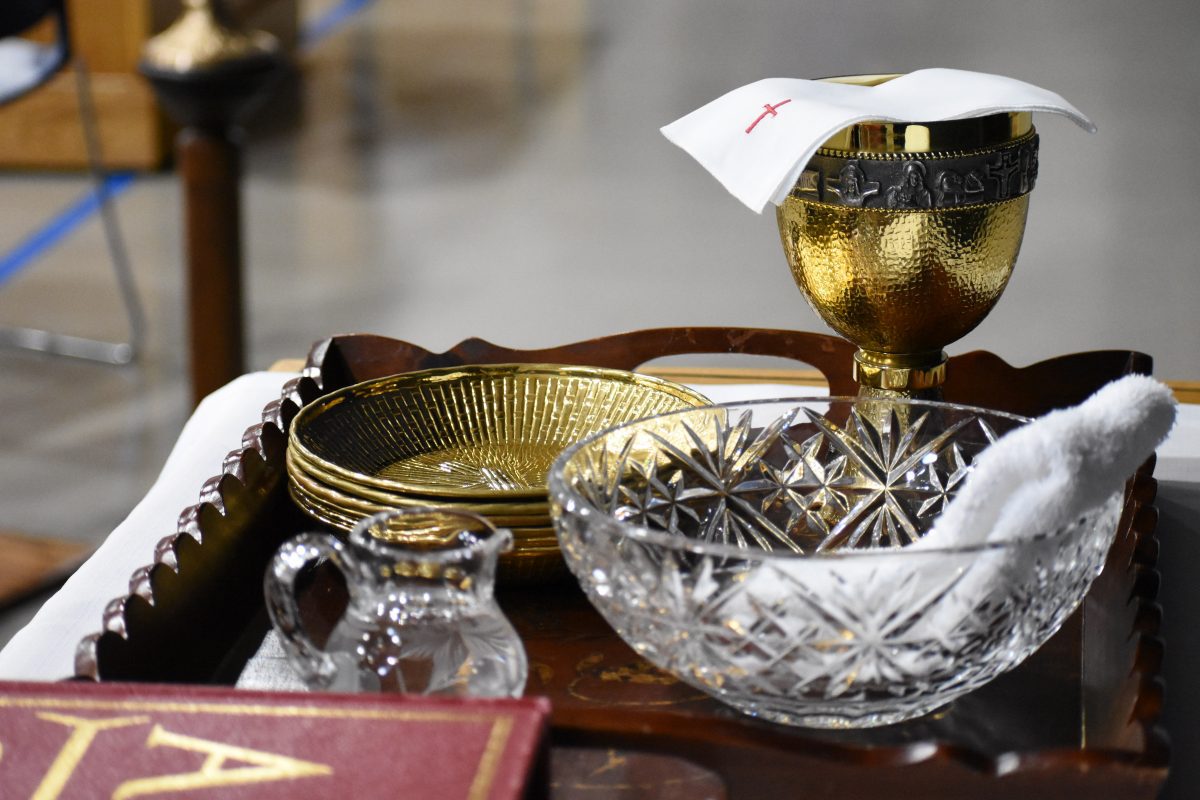By: Fr. Blake Britton
The Church has weathered numerous storms throughout her history. Wars, plagues, famines, persecution…all of these are impressed upon the memory of Mother Church, forming her age-old wisdom and inspiring her pastoral concern. One of the ingenious notions developed as a result of these trials is the practice of spiritual communion. The theology of spiritual communion gives us profound insight into the very nature of the Eucharist itself.
The Holy Mass (aka the Eucharist) is the source and summit of the Church’s life. As such, it is also the epicenter of Christianity per se. This is true in two ways. Firstly and most essentially it is the activity of Jesus offering Himself to the Father. In other words, the Eucharist is primarily a sacrifice. The word sacrifice comes from two Latin words sacra meaning “holy” and facere, “to make”. The Holy Mass, therefore, is Christ “making holy” His mystical body, the Church. It is Jesus, through the hands of His priests, reconciling the world with the Father. St. Paul says it beautifully: “For God was pleased to have all His fullness dwell in Christ, and through Him to reconcile to Himself all things” (Col. 1:20). This is why the high point of the Mass is not reception Holy Communion, but rather the Doxology: “Through Him and with Him and in Him, O God Almighty Father in the unity of the Holy Spirit, all glory and honor is yours forever and ever. Amen!” In these words, we hear the reason we celebrate Mass, namely, to witness and participate in the saving activity of Christ who binds us to the Father: “May they all be one Father, just as you are in me and I am in you” (Jn. 17:21).
Here, we see the primary purpose of spiritual communion; to unite our hearts and souls with the sacrifice of Christ made by the priest in the Holy Mass. Even though we may not be able to attend Mass physically because of extraordinary circumstances, our Bishop and parish priests are still celebrating the Eucharist privately. Thus, we are called to unite our hearts with the heart of our shepherds who speak to God on our behalf and fulfill Christ’s mandate to “do this in memory of me” (Lk. 22:19). Wherever a priest faithfully celebrates Mass, there is the Church! The souls of those present and absent are integrated into a single symphony of love to the Father. Although we have to be separated for the sake of safety and protection, we can still be united to one another through prayer and contemplation.
The traditional practice of spiritual communion also teaches us that desire for Christ is a means of communing with Christ. The ancient Church recognized this fact for Christians who were martyred before receiving baptism. Although they did not physically receive baptism, they were sanctified by a “baptism of desire”. Their longing to be with Christ allowed them to experience the benefits of the sacrament, even though extraordinary circumstances did not allow them to receive the sacrament physically. The same is true of the Holy Eucharist. St. Thomas Aquinas defines spiritual communion as “an ardent desire to receive Jesus in the Holy Sacrament and a loving embrace as though we had already received Him.”
There have been a number of occasions in history when the Church has had to suspend the celebration of public liturgies. This decision is never taken lightly. As a result, the faithful are called to hone their desire for Christ in the Eucharist, trusting that God will commune with their souls.
At the hour you would typically go to Mass on Sunday, call your family together for a Liturgy of the Word reading the prescribed scriptures of the day. After the readings, kneel or stand together in front of a crucifix and ask Jesus to fill your heart with His sacramental love and grace. Let Him know how much you wish you could go to Mass, but cannot. Then, ask Him to unite your heart with His Sacred Heart present in the tabernacle nearest to you at that moment. You can offer the same kind of prayer when watching a Mass through livestream or television.
There are many people who are troubled and disturbed by the necessity of suspending public liturgies due to COVID-19. This is understandable. But, we cannot allow it to steal our peace and joy as God’s children. Jesus knows your heart, your will, your desire. Allow that to be a prayer to Him during this time of crisis so that these upcoming weeks may not be a cause of stress, but rather an opportunity for holiness.


